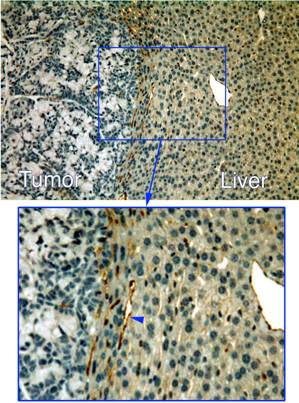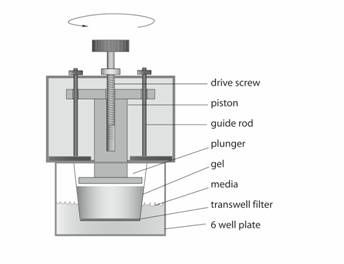Metastasis: biomechanics
Solid stress is transmitted through the structural elements of the interstitium and the cells. It is independent of hydrostatic pressure, which is transmitted through intra- and extracellular fluids. Cell proliferation in a confined space creates solid stress, which exerts forces on these structural elements, affecting the cells themselves as well as blood vessels. Recent reports show that gene expression in developing embryos is affected by applied mechanical stress. Mechanical stress also leads to phenotypic changes in adult cells, including cancer cells. In this project, we investigate the factors that contribute to solid stress in tumors, determine the effects of solid stress on tumor physiology, gene expression in cancer and stromal cells, and evaluate whether increased solid stress promotes metastasis.

Compression of peritumor vessels by tumor-produced solid stress. LS174T human adenocarcinoma cells growing in the liver of a SCID mouse after metastasizing from the colon. The brown stain marks blood vessels, which are deformed near the tumor boundary.

Methods: Gel compression device mounted on a 6-well plate containing a transwell filter. Static compression is be applied to induce the desired change in gel volume. Compression is controlled by turning the drive screw, which results in linear motion of the plunger. (not to scale).
